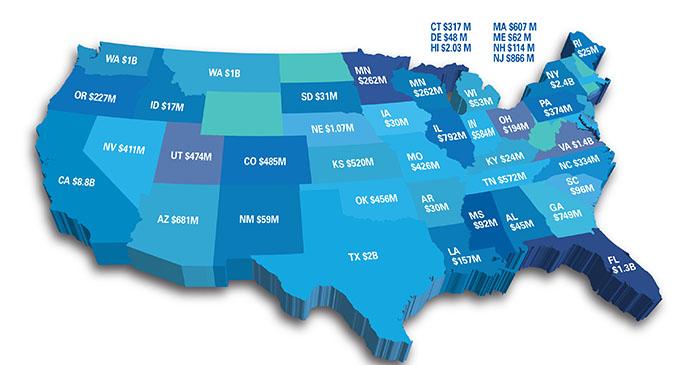The bank on Feb. 1 reorganized its U.S. subsidiary, known as Taunus Corp., so that it is no longer classified as a “bank-holding company,” according to disclosures by the bank and on the U.S. Federal Reserve’s Website. Deutsche Bank is at least the second large European bank to make such a change, following in the footsteps of the U.K.’s Barclays PLC.
The technical change has important consequences. Taunus-which at the end of last year had about $354 billion of assets and 8,652 employees, making it one of the largest U.S. banking companies-won’t have to comply with a provision of the U.S. Dodd-Frank regulatory-overhaul law that essentially forces the local arms of non-U.S. banks to meet the same capital requirements that American banks face.
Deutsche Bank has two main U.S. units. One is a trust company that has a banking license and must adhere to stringent U.S. bank-safety rules. The other is an investment-banking arm that isn’t technically a bank.
Until the recent move, both units were housed under Taunus, which didn’t need to meet U.S. capital requirements, thanks to a waiver provided by the Fed a decade ago.
A provision of the Dodd-Frank Act, designed to prevent a repeat of the financial crisis, repealed the law under which that waiver and others were granted. That change was going to require Deutsche Bank to infuse Taunus, which for years operated with thin capital cushions, with what executives feared could be as much as $20 billion, according to those familiar with the matter.
Deutsche Bank responded by moving the trust company out of Taunus, named for a mountain range near Frankfurt. That means Taunus is no longer a bank-holding company and won’t have to comply with the tougher capital rules, even though Taunus still houses Deutsche Bank’s U.S. investment bank.
As of Feb. 1, Taunus is classified as “domestic entity-other,” instead of as a “financial holding company,” according to the Federal Financial Institutions Examination Council’s Website.
“We have always had and will continue to have appropriate capital levels in all our U.S. regulated entities. This action, which does not diminish any of our regulatory oversight, allows us to streamline our organizational structure, strengthening an already strong institution,” said Deutsche Bank spokesman Duncan King.
While U.S. regulators haven’t objected, the maneuvers by European banks to sidestep elements of Dodd-Frank have generated controversy. Some experts worry the tactics will allow the U.S. arms of the European banks to continue operating with thin capital cushions and that their overseas parents won’t come to their rescue if they get into trouble.
“When an institution becomes stressed, long experience has shown that foreign banks and their regulators are reluctant to send capital abroad to support U.S. operations,” said Sheila Bair, the recently departed chairman of the Federal Deposit Insurance Corp. “The only capital that matters is that which is here in the U.S. and can be accessed.”
Others say Deutsche’s move could encourage other European banks to pursue similar strategies that minimize their regulation by U.S. authorities.
Deutsche Bank’s investment-banking arm, which includes big capital-markets, mergers-advisory and derivatives operations, won’t entirely avoid supervision. The Securities and Exchange Commission will be its primary regulator. And the Fed will remain responsible for monitoring the entirety of Deutsche’s U.S. businesses.
But because Taunus is no longer a bank-holding company, it is unclear what jurisdiction the Fed will have to intervene in the investment-banking arm if it has concerns about how the unit is being run or whether it has adequate capital buffers.
The maneuvering comes as the Fed prepares to outline proposed rules for how it will supervise foreign banking companies that operate in the U.S. and are classified as “systemically important.”
Deutsche Bank’s move had been expected, but the timing has been a source of confusion. Deutsche Bank disclosed the change in a footnote on page 347 of its annual report, which was published in March. It said the change was effective Feb. 1.
On a Feb. 2 conference call to discuss Deutsche Bank’s annual results, a Morgan Stanley analyst asked whether Taunus “has now been fully debanked in the U.S.” Deutsche Bank’s finance chief, Stefan Krause, responded that “this is an ongoing project still… we have not yet completed the debanking project.”
Analysts interpreted that comment as meaning Taunus remained a bank-holding company.
A Deutsche Bank spokesman said Krause’s point was that the overall restructuring of the U.S. business wasn’t complete.
Authors: David Enrich and Laura Stevens, wsj.com














